Can China turn the trade war into a post-capitalist revolution?
In one fell swoop, Trump has pushed the global economy into an abyss, accelerating the fragmentation and realignment of international relations. While the outcomes of Trump’s actions may be completely contrary to what it expects, China will be able to lead the world towards a post-capitalist future if it breaks free from the entrapment of capitalism, says US-based writer Lance Gore.

Trump’s global tariff war has further obscured the already nebulous “great changes unseen in a century” (百年巨变). The US appears determined to embrace strategic self-sufficiency and assertive isolationism, aiming to reclaim manufacturing dominance by leveraging its technological and entrepreneurial strengths. Its goal: undisputed superiority over China and continued global leadership, ending what it perceives as free-riding by other nations.
US’s self-defeating game
Yet Trump’s combative, us-against-the-world approach suggests a “Celestial Empire” mentality — self-important and recklessly arrogant — reminiscent of the late Qing dynasty. While drastically reducing the benefits of friendly relations with the US, Trump has adopted a stance of bullying, even humiliating other nations, seemingly believing their leaders will submissively seek his favour, like birds paying homage to the phoenix that soars and shrieks.
In the early 19th century, the Qing dynasty was the world’s largest economy, accounting for a third of the world GDP, exceeding the current 25% share by the US. However, by the mid-19th century, China had become the “sick man of East Asia” and would go on to endure a century of humiliation.
Because the US has far less control over global powers than it assumes, the outcomes of its actions may backfire spectacularly.
Trump’s aggressive actions have thrust the global economy towards an abyss, accelerating the fragmentation and realignment of international relations. Because the US has far less control over global powers than it assumes, the outcomes of its actions may backfire spectacularly. In particular, the US dollar could lose its dominance, severely diminishing American global influence. At least in the short term, the US will face unforeseen difficulties as it engages in this game of attrition.
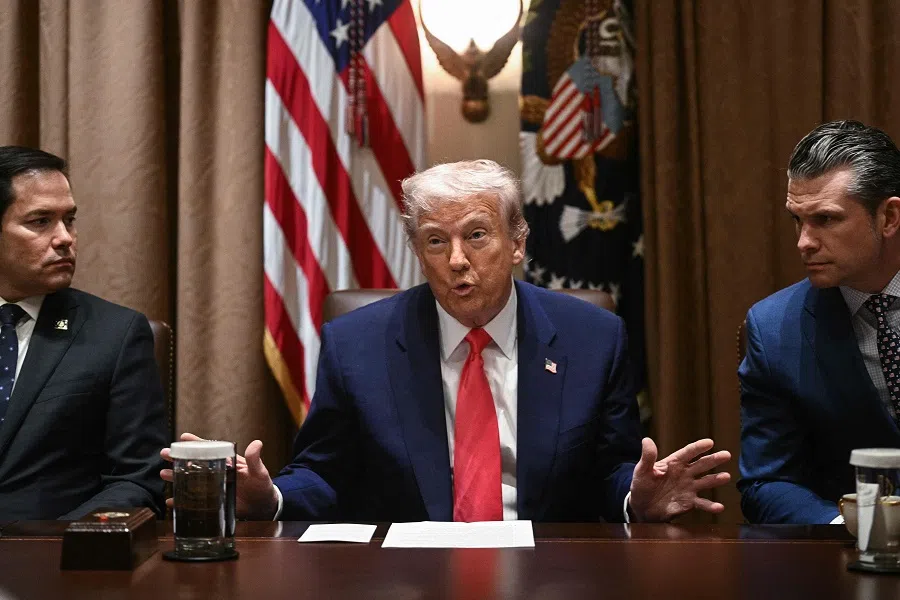
“Great changes unseen in a century” imply moving towards a “new form of human civilisation” (人类文明新形态), and China would be able to lead the world towards a post-capitalist future if it could break free from the entrapment of capitalism.
Two possible endings
Fundamentally, this tariff and trade war is the inevitable result of fierce capitalist competition, where interconnected yet uneven development among nations creates cyclical power shifts. Understanding US-China rivalry, whether from a Chinese or global perspective, requires analysing it within the framework of capitalism.
This decisive struggle between China and the US has two potential endings. One is mutual devastation, clearing the way for new global powers to emerge in the cyclical pattern of history. China, like the US now, will eventually face this inevitable decline. This is the enduring rhythm of nations: rise and fall, leaving their mark on the people who endure these endless cycles.
The alternative outcome is China’s complete dominance, achieved through unparalleled competitive advantages and production efficiency, becoming the sole global provider of goods and services. This, however, would not be the triumphant “great rejuvenation of the Chinese nation” (民族复兴) but rather a crisis of inadequate global purchasing power to sustain capitalist production.
China would find itself isolated, its endless output exceeding global demand. Ironically, fears of being overwhelmed by China’s excess capacity align with Trump’s trade war. As nations plead for tariff relief, Trump would undoubtedly leverage this to further isolate and pressure China.
Even if China triumphs over the US in this tariff war, can it solve its socioeconomic problems, including unemployment, involution, persistent poverty amid great wealth, rich-poor polarisation, real estate bubbles, local government debt, insufficient domestic demand, cyclical economic crises and corruption?
This concentration of wealth and production among a knowledge elite exacerbates inequality and fuels social unrest, likely driving a chaotic shift toward post-capitalist models.
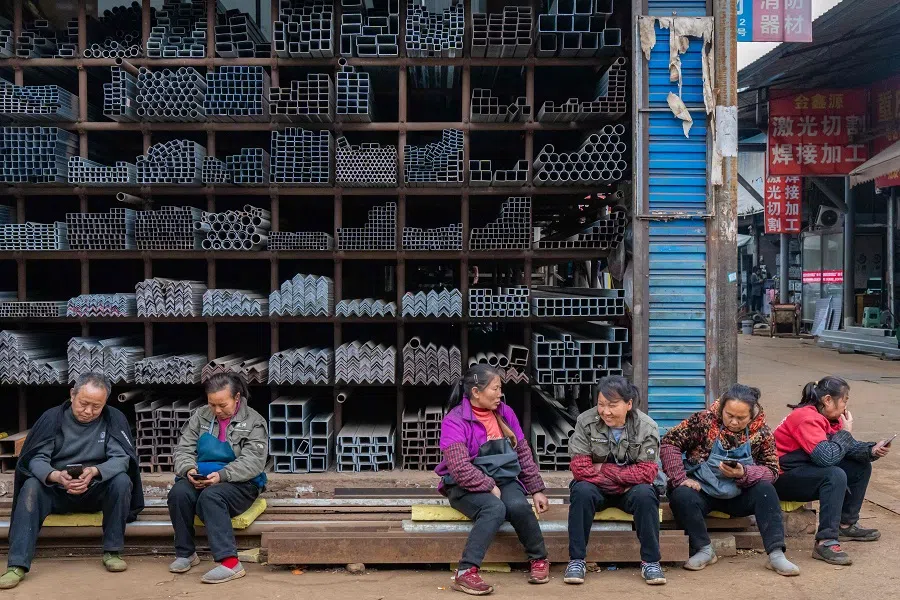
AI and capitalism’s crisis
These problems, common to all capitalist countries, stem from fundamental contradictions within capitalism itself, as analysed by Karl Marx: despite the capacity to meet everyone’s basic material needs, the system necessitates the destruction of production capacity when widespread economic insecurity prevails. This leads to job losses, business closures, and increased unemployment and homelessness. In essence, persistent poverty amidst abundant resources is capitalism’s inherent flaw.
The knowledge economy driven by the AI-led technological revolution is intensifying capitalism’s fundamental contradictions. It creates a winner-takes-all condition where investment opportunities and returns increasingly concentrate in a handful of people, projects or enterprises, thus exacerbating the wealth gap and social injustice to trigger social unrest.
This stems from the knowledge economy inheriting outdated capitalist rules and distribution systems. By focusing on traditional capitalist competition, such as tariff wars, we fail to recognise the opportunities this technological revolution offers for a post-capitalist future.
Moreover, this technological shift poses a significant threat to capitalism by reducing labour’s role as the primary source of value. In this new economy, many products and services require fewer workers, severely impacting the working class by stripping them of both bargaining power and their place at the negotiating table. As large segments of the population become economically redundant, capitalism risks losing the consumer base it relies on for growth and sustainability.
This concentration of wealth and production among a knowledge elite exacerbates inequality and fuels social unrest, likely driving a chaotic shift toward post-capitalist models. China’s system may be uniquely advantageous in this transition, potentially pioneering new forms of human progress.
New form of human civilisation?
The knowledge economy, while signalling the end of capitalist production, simultaneously opens doors for socialism. In the fourth industrial revolution, knowledge becomes the key production factor, with distinct features: it can be reused at nearly zero marginal cost, creates positive externalities beyond GDP measurements, grows exponentially following Moore’s Law, and offers increasing marginal benefits, challenging the norm of diminishing returns. These elements significantly boost societal productive forces, paving the way for an emerging post-capitalist civilisation.
In a post-capitalist civilisation, non-material and intrinsic human motivations, long suppressed and distorted by capitalist competition, are expected to become the primary driving forces for development.
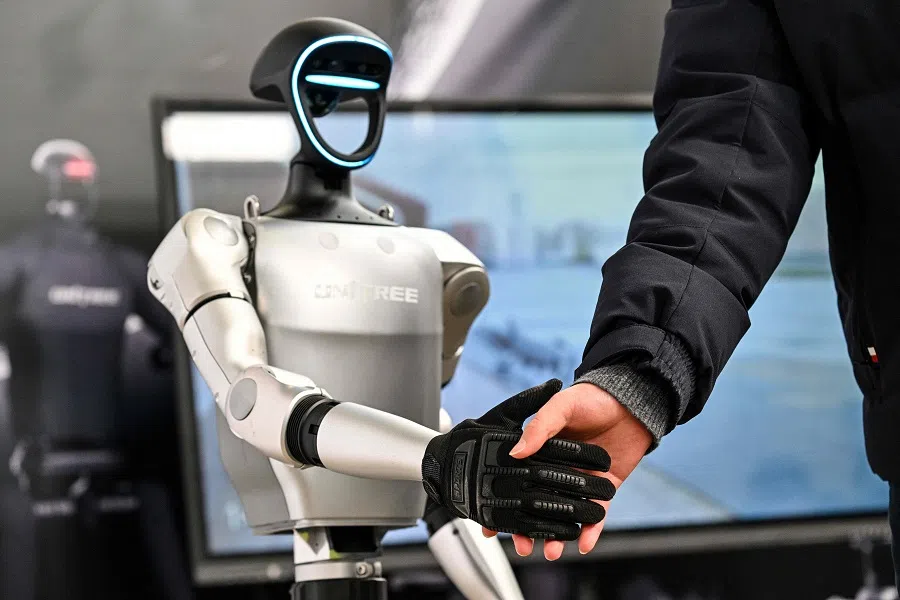
Moving in the same direction are the emergent but far from mature platform economy, sharing economy, maker movement, open-source communities, online cooperatives, universal basic income, and regional and community currencies.
In spirit and ethics, they prioritise cooperation over competition, focus on production for use rather than for value exchange, and centre on human needs instead of profit. They tap into the positive aspects of human nature that capitalism has sidelined, aiming to eventually supplant the profit motive that drives capitalist civilisation.
Deepseek founder Liang Wenfeng’s concept of innovating purely for innovation’s sake — rather than for profit — is challenging for capitalists and many others to understand. Similarly, China’s whole nation system operates without a primary focus on profit. In a post-capitalist civilisation, non-material and intrinsic human motivations, long suppressed and distorted by capitalist competition, are expected to become the primary driving forces for development.
Elon Musk and open-source philosophy
For example, patents are quintessential to the capitalist mode of production, but Elon Musk believes that patents are for the weak. After he announced that Tesla would open all its patents and source codes in 2014, the maverick electric car company became a purveyor of the open-source philosophy overnight.
When a reporter once asked Musk if SpaceX had applied for rocket engine patents, Musk was caught off guard and replied that he had never cared about such things. SpaceX has also made its blueprints public, and information about the Raptor reusable rocket engines can be found online.
After acquiring Twitter (now known as X), Musk also swiftly released part of its source code. In the post-capitalist era, intellectual property rights may no longer be a competitive advantage but instead hinder the development of productive forces.
In the AI era, traditional jobs may become scarce, leading many to compete for volunteer work without material rewards. This shift aligns with the human desire for work that provides fulfillment and meaning. As AI increasingly automates production, autonomous and efficient processes will become standard across industries.
This liberation of wealth creation from capitalist constraints could usher in an era of unlimited abundance, transforming society’s ideology, values, morals, culture, customs, behaviours and lifestyles. Such a transformation would culminate in a new form of human civilisation, free from capitalism’s cyclical crises, highlighting the futility of tariff wars.
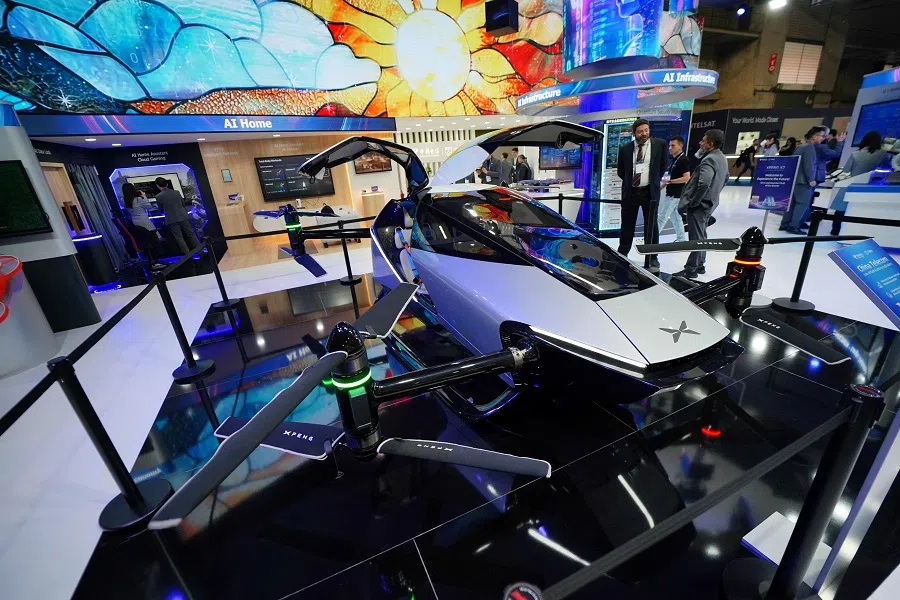
Therefore, China’s real victory is not defeating the US in the game of capitalism but elevating itself from the entrapment of capitalism and taking the lead in post-capitalist civilisation.
... it is necessary for China to partially decouple from the capitalist system to avoid its constraints, burdens and adverse impacts.
A new global strategy in partial decoupling
The Chinese Communist Party (CCP)’s assertion that it has already created a new form of human civilisation is considered premature and overly self-congratulatory. In reality, China continues to grapple with capitalism’s fundamental contradictions and may face even more significant challenges than some capitalist economies.
Only by establishing a post-capitalist mode of production can these contradictions be resolved, including the root causes of tariff wars. China must be wary of premature self-congratulation, as it risks repeating the historical missteps of the late Qing dynasty and following a path similar to that of the US.
Transitioning to a post-capitalist society in today’s world is extremely challenging. In China, as in capitalist nations, the powerful forces of the market economy have not benefited the entire population. Many people face unemployment or inadequate wages, while those who are employed often find themselves caught in a cycle of endless involution. Despite rising productivity and material abundance, their quality of life has declined rather than improved.
The CCP’s strong organisational capabilities position China to potentially lead the transition toward post-capitalism. Pioneering a new form of human civilisation requires a relatively autonomous policy-making environment, which is difficult to achieve under the interdependence and intense competition of global capitalism. Therefore, it is necessary for China to partially decouple from the capitalist system to avoid its constraints, burdens and adverse impacts.
For instance, some non-market mechanisms to calibrate distribution must be introduced to achieve common prosperity. The trade war has shown that China’s whole-nation system of “doing great things with concentrated power” (集中力量办大事) is incompatible with the logic of the liberal market economy, and hence is unacceptable to capitalist nations. Decoupling, as a consequence of the US-China tariff war, creates this very space that China needs.
As the “Trump shock” disrupts the interests of developed nations, some Western countries, including the US, are paradoxically adopting elements of China’s institutions, policies, and practices while simultaneously criticising the CCP.
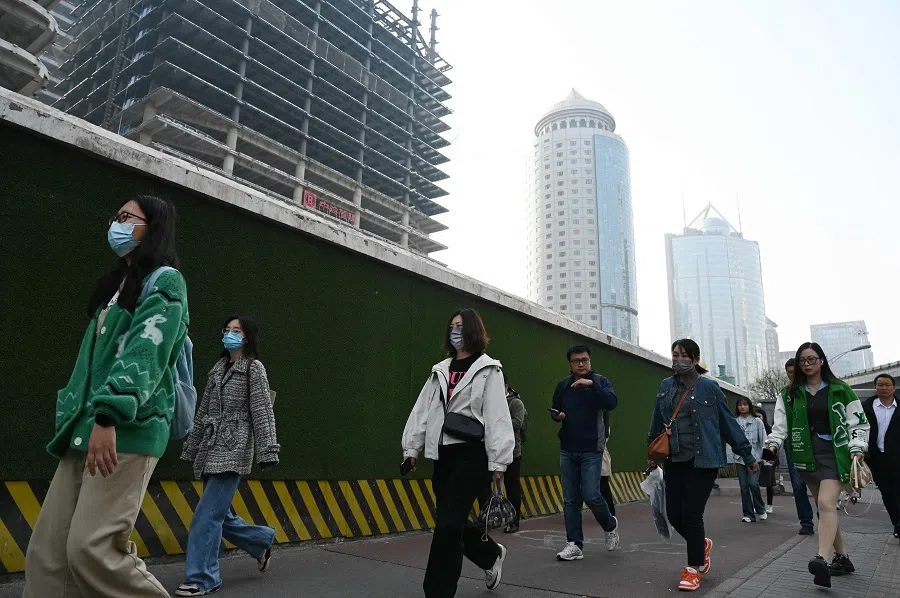
The popular Chinese maxim, “doing our own things well” (做好自己的事情), should not be mistaken for simply practising capitalism effectively. Instead, it should be interpreted as setting an example for the world in addressing capitalism’s fundamental contradictions.
While China has made significant strides in freeing itself from the confines of Western models, particularly neoliberalism, it still lacks substantial progress in establishing a comprehensive alternative system. This gap highlights the ongoing challenge of developing a new model that effectively resolves the inherent issues of capitalism.
China has made headways in advocating multipolarity and promoting the rise of the global south. It has also channeled considerable energy and resources to developing nations through the Belt and Road Initiative, adopted zero tariffs for least-developed nations, built up the East Asian Community, and promoted win-win diplomatic relations.
As the “Trump shock” disrupts the interests of developed nations, some Western countries, including the US, are paradoxically adopting elements of China’s institutions, policies, and practices while simultaneously criticising the CCP. In this context, China has the opportunity to lead the “great changes unseen in a century”, but to do so effectively, it must expand its vision and ideas on post-capitalism. By broadening its approach, China can set a global example for navigating the challenges of this transformative era.
This article was first published in Lianhe Zaobao as “中国应引领“百年巨变”的方向”.




![[Big read] When the Arctic opens, what happens to Singapore?](https://cassette.sphdigital.com.sg/image/thinkchina/da65edebca34645c711c55e83e9877109b3c53847ebb1305573974651df1d13a)
